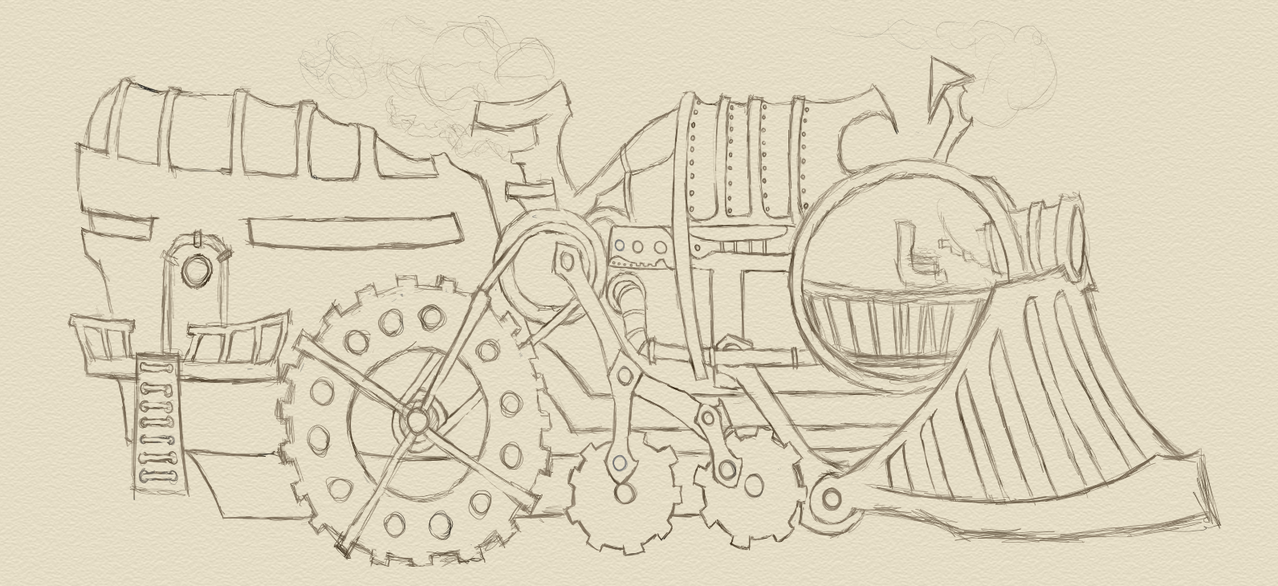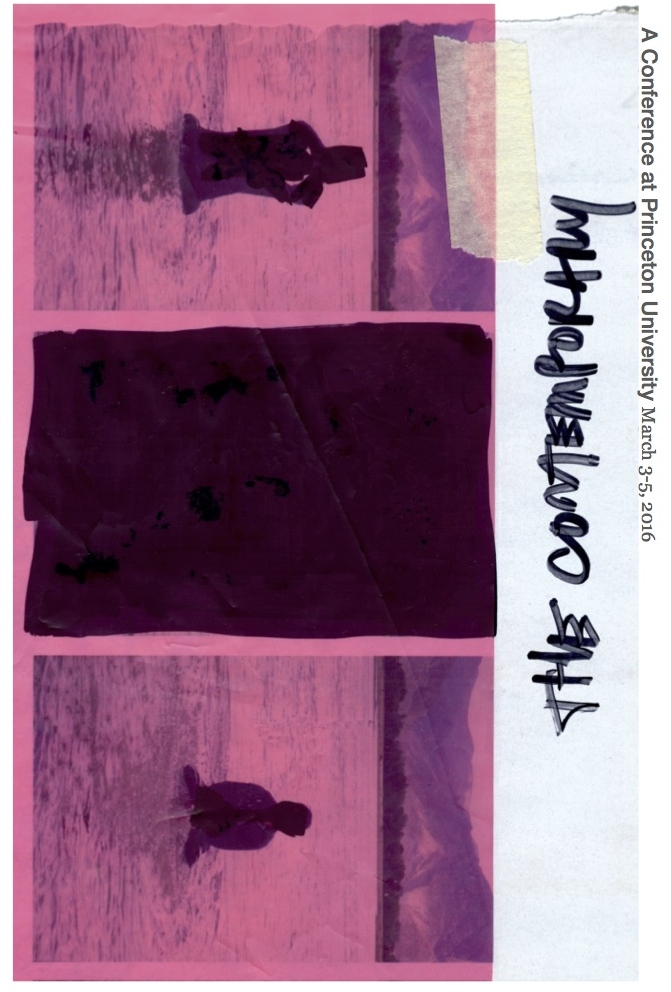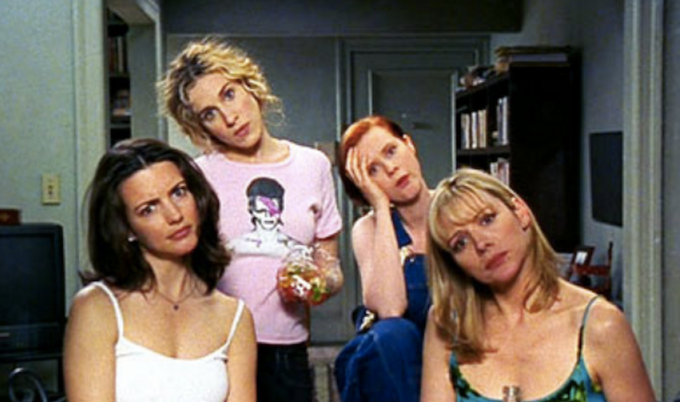Lydia Davis
In the one-paragraph story "Special Chair" (2001), Lydia Davis describes the situation of writers who teach in the university system as one of shared longing. "He and I are both teachers," her narrator describes, "and we will be teachers until we are too old to teach, and we would certainty like to be given a special chair at our universities . . . so that we will be paid more and not have to teach as much and not have to sit on so many committees — we would sit instead on our special chair."1 The narrator has in fact received a special chair, but it is not the one she wants. It is "the wrong kind of special chair, a special chair belonging to a friend, a chair that swivels and has splayed feet and is special to her for reasons we can't remember."2 Made of "strange red vinyl upholstery," this heavy chair is the stuff of garage sales or warehouse events — nothing luxurious, but a find nonetheless, passed down by a luckier colleague who managed to secure tenure at another institution. The deadpan narrator hopes that the chair might function as a good luck charm, bringing her "good luck of the professional kind" too.3
I found myself drawn to this story — and to Lydia Davis's other tightly-wound and eccentric stories of professional anxiety — during my final year of graduate school, when I too was considering my professional future and doing all I could to maneuver myself into a position that would allow me to continue living the writing life, either inside or outside the academy. This was at the height of the pandemic in the spring of 2020, when I had begun working exclusively from home, and I also found myself needing a new chair. (Doctors had speculated that my increasing migraines could be due to neck tension and, of course, screen time.) I became acutely aware of my working conditions: I bought blue light glasses and tried not to notice their absurdity in Zoom meetings; I instead paid attention to my posture, my breathing, my levels of stress. I adjusted to writing alone during long stretches of days broken up by almost nothing, when I had previously relied on the noise of a coffeeshop and the casual routines of university life to drown out my demons.
During this time of isolation and professional uncertainty, Davis's stories of solitary yet disciplined mental frenzy were my companions. I admired them for doing two things at once: giving expressions of anxiety the rigor of intellectual intention and, at the same time, both magnifying and diminishing a thought by pushing it to its absurd conclusion, rendering it funny. As Davis observes in Essays One, "incongruity is at the heart of humor."4 What's incongruous in "Special Chair" is that the teachers both do and do not get what they want. The story swivels on itself, as the meaning of the phrase "special chair" shifts and as Davis's narrator, with characteristic irony, details a situation that is an unfunny joke. The story is not just about professional contingencies but about twisting this glamorous, prestigious idea of a university chair into a mundane, concrete thing — just a chair, that you sit on, to write.
"Special Chair" also draws attention to what so many of us have been newly realizing these past few years: that to live a writing life requires a whole network of support. Writers do need a good chair — the cushion of material and institutional padding, the space and time to think, the intellectual clarity that both conversation and solitude can bring. In our current landscape, universities often provide this in the form of professorships or teaching positions. As Mark McGurl has established (and as Lola Boorman discusses), writers are closely intertwined with the university system.5 But resources are running thin, and, as Netflix has recently popularized through its aptly-named series The Chair, tensions are high. Even as established academics scramble for endowed positions, younger ones look for a seat at the table. Who will get the special chair? Who will get a chair at all, in the increasingly futile game of musical chairs that is the academic job market? And how does one handle the uncertainty involved in academic life and keep on writing?
Davis's stories, seeped as they are in an academic world, catalogue these experiences of difficulty and discomfort.6 In stories across her career, Davis reflects on her writing life and its institutional obligations with ambivalence, probing professional anxiety with her characteristic humor and analytical precision. These stories of literary professionalism are anything but glamorous and self-congratulatory: instead, they scrutinize mundane moments of hesitancy, exhaustion, and self-doubt, as Julie Tanner also discusses in her piece on The End of the Story. What Davis's stories offer is insight into the strange mix of solitude and sociality the contemporary writing life—and researching and teaching life—requires and also makes possible.
*
Take "The Letter to the Foundation," collected in Can't and Won't (2014). It's one of Davis's most discursive and seemingly autobiographical stories, an examination of the professional routine and mental habits of a writer who is also a university teacher trying to make ends meet. As its title suggests, the story is written as a thank-you letter to the literary foundation that has awarded a grant, its very form spotlighting the institutional entanglements required to live the writing life.7 Yet what begins as a simple response to good professional news — some "luck" of the kind that was denied the narrator of "Special Chair" — quickly turns into a phenomenological meditation on the persistent dread and difficulty that accompanies the narrator's profession.
The unsigned letter, nestled among other letters of complaint in the collection, is addressed to "Frank and Members of the Foundation," making it feel both intimate and public, as if we're overhearing a private correspondence or dipping into a confessional moment.8 Davis plays with this bureaucratic context and its presumed formality, divulging private details that would usually be kept out of administrative business and doing so in the guise of fiction. Her narrator is oversharing, and the letter itself may or may not have been solicited, she admits, but she's writing it anyway: "I think you did say you were curious about what it was like to receive this grant, but by now I may be confusing something you said with something another person said to me, asking if I would describe for him what it was like. In any case, whether or not you asked me to describe it, I will do that."
Davis's narrator begins to describe the experience of getting the grant as one, initially, of disbelief:
I had wanted [the grant] for many years. I had watched others receive it while I did not receive it: I was simply one of the hundreds and hundreds of scholars who ardently want one of these grants in order to be rescued at least temporarily from the life or the work they are subjected to—the heavy course load, the constant exhaustion, the annoying dean of studies or the impossibly detail-oriented acting chairwoman, the committee work, the endless office hours, the flickering fluorescent light in the office, the stains on the classroom carpeting, etc. I was deeply accustomed to being one of those who were passed over by the Foundation, who were rejected, who, in the eyes of the Foundation, should not receive this award and were less worthy than certain others. I therefore did not really believe I was one of those who had been rescued, or I was very slow to begin believing it.9
Davis repeats the word "rescued" twice, as if her narrator's ordinary working conditions put her in a position of danger. So many contingent scholars are familiar with this feeling, this desperate desire to be plucked out of the mud and saved. Being one in "hundreds and hundreds" of applicants to anything is depressing, and in what is recognizable to so many of us, Davis's narrator dwells on financial worries throughout the story, describing living paycheck to paycheck and taking on small projects to pay the bills. (At one point, after she has come into the money from the grant, she considers splurging on an $11 salad instead of her usual $7 one.)
Her relief isn't only about money, though. Davis's narrator believes, incorrectly, that the grant will release her from her teaching responsibilities, which bring her so much anxiety: "I thought I would no longer be attached to anything, or to much: I thought I would not be attached to my teaching job, and I thought I would not be attached by those many strings to all the necessary other small and large jobs that would earn me four thousand dollars, or three, or two, to cover three months, or two, or one."10
But this is not what happens, and she has to continue teaching, carrying on in much the way she always has, existing somewhere between a minor celebrity and an unnoticed lecturer, a woman who drinks hot chocolate at the campus cafeteria on Fridays and commutes via bus. She dreads teaching, so explaining in what specific ways teaching is difficult for her becomes the mental object of contemplation.
For the rest of the story, Davis's narrator describes what is surely recognizable to so many of us: the occasional awkwardness of the classroom, an inability to write on the blackboard legibly, those days when discussion goes awry or you think of a good response to a student's comment only after the fact. She even details the excruciating office hour spent alone, watching the clock slowly approach the time of the class meeting. Even the narrator's wardrobe does not escape comment. "During the whole term," she tells Frank, "I wore black — a black coat, black shoes, black pants, and a black sweater — as though it were some sort of protection," reminding me of advice I received during my first semester teaching, to don all-black and bright red lipstick to be taken seriously.11
What's striking about these teaching woes, however, isn't that they are so ordinary or relatable but that teaching is figured as an ever-necessary performance, the carefully-orchestrated stagecraft that so often structures the life of a university-affiliated writer. In the classroom, the narrator (and her body) are hyper-visible and exposed. All eyes are on her, studying her face and body "critically" as if a "foreign object." ("It is such an uneven match," the narrator explains. "There are so many on one side, in rows, staring at just one alone in front of them.")12 This exposure contrasts with the usual solitude and institutional neglect that pervades the rest of the story: there's the loneliness of the office hour; the fact that the story itself is a letter written years after the fact, perhaps to be read by no one; her solitary commute on the bus, left alone with her thoughts. Perhaps no detail better illustrates the whiplash of being simultaneously fetishized and forgotten by an institution, however, than the fact that after the narrator has won this grant, the president of her alma mater congratulates her and promises a letter will be sent inviting her to give a talk. The letter never arrives, even after she inquires, and all turns to radio silence (with an exception: she receives the alumnae magazine and a request for a donation!).
*
I confess that I found reading this story of academic complaint as a graduate student during the pandemic both frustrating (what a luxury to be teaching in-person, to be awarded a grant!) and comforting (remember when there was teaching in-person?, and commutes? and people to talk to?). Davis dwells on teaching anxiety, but for so many colleagues I know, teaching is what we look forward to and what keeps us going — it's one of few social outlets, a much-needed opportunity to tackle the shared work of writing and thinking together in a university setting that usually feels all too impersonal. Now, I'm no longer in academia — I'm happily teaching high school — but reading Davis's reflections on academic anxiety and exhaustion still bring me a shudder of recognition. "The Letter to the Foundation" comes off to me, now especially, as a necessary and honest assessment of what it feels like to live a writing life at a university now. To write, one must have a chair, and these days, to keep moving from chair to chair, one must endlessly write letters of application. Bureaucratic necessity is our art.
And don't we wish things were different? So many academics I know like to dwell in counterfactuals, in thinking about what might have been, or could have gone differently, if they had chosen other careers or pursued some other opportunity. We wonder what kind of people we'd be. Davis gives voice to similar thinking in "The Professor" (1997), a story that responds to professional anxiety by poking fun at university life but ultimately affirming it. The story is a reflective portrait of a young female professor who used to imagine, in her early days of teaching, what it would be like to escape the stuffy halls of her English department and become a cowboy's wife. Unlike English professors, she imagines, cowboys don't overthink things, and marrying one would allow the narrator to live a straightforward life in the country, one filled with concrete tasks.13
As an extended counterfactual exercise, "The Professor" belies the disappointment and discomfort the narrator has with life lived in university halls — she dreams of wide-open spaces, of the sky above her, of daytime privacy and time to read coupled with nighttime conversation that would still stimulate her mind. In the few details the narrator does share about her life as a professor, she highlights its lack of connection, its awkwardness, and her own insecurity, revisiting much of the terrain of "The Letter." She speaks of her briefcase as a prop, for example: "After I was hired to teach the first time, I bought a briefcase. I carried it through the halls like the other professors." Her observation that the younger men carry their briefcases "like trophies" suggests she isn't thrilled with the decorative and performative nature of this professional uniform.14 Cowboys, she tells us, wear stylish and practical clothes.
This story is funny, quirky, and ironic. It's also brilliant because it dwells in the subjunctive mood while interrogating it and ironizing it. In examining her desire for escape, Davis's narrator turns a critical eye on her own overthinking and admits she's imagining professional glamour elsewhere, exoticizing something she doesn't even know much about:
All I wanted to do was go out into the middle of the desert, as far away as possible from everything I had known my whole life, and from the university where I was teaching and the towns and the city near it with all the intelligent people who lived and worked in them, writing down their ideas on notebooks and on computers in their offices and their studies at home and taking notes from difficult books . . . The fact is that if an alcoholic cowboy came into my life in any important way I would criticize him to death for his drinking until he walked out on me.15
As much as Davis's narrator romanticizes a different life, she also acknowledges her own kinship with "university people," as she refers to her colleagues earlier in the story.16 She has chosen to live this particular life, repeatedly, and she pokes fun at her own fantasies. In actuality, she wouldn't know what to do on a ranch.
I suspect that many academics indulge in similar dreams of a simpler or more comfortable life — of a more thriving and just university system, of more open sky and time to write — but we too keep carrying on, affirming what is. And while what we do is linked to who we are, Davis reminds us that professional roles are not the end of the story, that we can and must reimagine ourselves. Her words bring me courage, striking with precision at the heart of a common fear: that who we are is inseparable from our institutional perch. That's not the case. I'll end here with the narrator's thoughts in "A Position at the University" (1997):
I think I know what sort of person I am. But then I think, But this stranger will imagine me quite otherwise when he or she hears this or that to my credit, for instance that I have a position at the university: the fact that I have a position at the university will appear to mean that I must be the sort of person who has a position at the university. But then I have to admit, with surprise, that, after all, it is true that I have a position at the university. . . Then I see what the problem is: when others describe me this way, they appear to describe me completely, whereas in fact they do not describe me completely, and a complete description of me would include truths that seem quite incompatible with the fact that I have a position at the university.17
Julianne McCobin recently graduated with a PhD in English from the University of Virginia and now teaches in Washington, D.C. Her writing has also appeared in The Journal of West Indian Literature.
References
- Lydia Davis, "Special Chair," The Collected Stories of Lydia Davis (New York: Picador, 2009), 323. Throughout, I quote from Davis's stories in this collection, rather than the originally published versions. [⤒]
- Davis, "Special Chair," 323.[⤒]
- Davis, "Special Chair," 323.[⤒]
- Lydia Davis, "Thirty Recommendations for Good Writing Habits," Essays One (Farrar, Straus and Giroux, 2019), 239. [⤒]
- Mark McGurl,The Program Era (Cambridge: Harvard University Press, 2009). [⤒]
- Davis's biography displays her deep familiarity with university life. The daughter of an English professor and a teacher, Davis grew up in academic circles. She taught for many years at SUNY Albany as a professor of creative writing, where she is now a professor emerita. She has received numerous distinctions and awards for her writing, including a Guggenheim, a MacArthur fellowship, the Man Booker International Prize, and, most recently, a PEN/Malamud award.[⤒]
- Lydia Davis, Can't and Won't (New York: Picador, 2014), 179-207. [⤒]
- Other letter stories in Can't and Won't tend to be compact and breezier expressions of opinion. They include a dissatisfied customer's suggestions to a candy company ("Letter to a Peppermint Candy Company"), the correction of a mistake in a Harvard Book Store newsletter ("Letter to a Marketing Manager"), the correction of a misspelling of the word "shod" on a New England menu ("Letter to a Hotel Manager"), and unsolicited marketing advice ("Letter to a Frozen Peas Manufacturer"). Yet another letter story, "Letter to the President of the American Biographical Institute, Inc.," is an arch reprimand of an email scammer who reached out to a "Lydia Danj" for supposedly being selected "woman of the year," trying to solicit money from her for a commemorative plaque. [⤒]
- Lydia Davis, "The Letter to the Foundation," Can't and Won't (New York: Picador, 2009), 180.[⤒]
- Davis, "Letter," 184.[⤒]
- Davis, "Letter," 194. [⤒]
- Davis, "Letter," 189.[⤒]
- Lydia Davis, "The Professor," The Collected Stories of Lydia Davis (New York: Picador, 2009), 158.[⤒]
- Davis, "The Professor," 157. [⤒]
- Davis, "The Professor," 160.[⤒]
- Davis, "The Professor," 156.[⤒]
- Lydia Davis, A Position at the University, The Collected Stories of Lydia Davis (New York: Picador, 2009), 299. [⤒]





